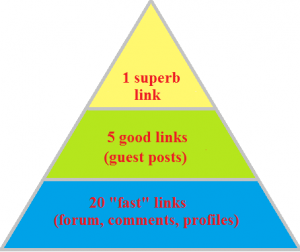FTC Puts Review Platforms On Notice For Violations
Ten review management platforms have been placed on notice by the Federal Trade Communication (FTC).
Letters went out to the publications, putting them on notice that “avoiding the collection or publication of negative reviews violates the FTC Act.”
One letter to Alex Goode, CEO at GoSite, and another to George Bilbrey, CEO of Signpost, cited concerns around “when companies take improper steps to avoid publishing negative reviews.”
Fashion Nova, Mike Blumenthal, Near Media co-founder and analyst writes, agreed to pay $4.2 million for review gating and suppressing negative consumer reviews. Yotpo served as the review platform.
The FTC is requesting transparency.
The FTC letters sent to the companies were triggered by three main issues — when companies only ask for reviews from happy customers, only post reviews from happy customers, and the way they handle positive and negative reviews, according to Blumenthal.
Blumenthal said Near Media gained access to the FTC letters through a Freedom of Information Act (FOIA) request
“The review ecosystem is rife with problems,” he wrote in an email to Search & Performance Marketing Daily. “Multiple parties are blameworthy beyond those identified in the letters.”
Companies like Treager have removed negative reviews repeatedly in the past, along with Healthline, which insisted the detailed review violated, in some way, its website policies.
Once a company receives this type of letter from the FTC, it is on notice that if subsequent violations occur and noted issues not fixed, the company could receive a fine, a consent order and public censure, Blumenthal explains.
Google and Amazon, protected under Section 230 and not directly liable for review spam or fraud, have through neglect and carelessness allowed their domains to become polluted with fake positive reviews and negative review attacks,” Blumenthal wrote in the post. “Getting Google, for example, to act on these is extraordinarily difficult and often futile, despite their claims about the marvel of their moderation processes.”
Everyone is to blame, Blumenthal writes.
Many companies and platforms attempt to help businesses cope with the “weird and irrational worlds” that Google, Amazon, Facebook and Yelp have created.
“Some of the practices from these companies, like review gating, are no different than what businesses have been doing since the dawn of commerce and capitalism, asking happy customers for testimonials,” he wrote. “And selective review display is much the same.”
Blumenthal, who views reviews as so much more than testimonials or endorsements, points out that one of the major challenges has become that no company has been willing to properly accepted the role that reviews play in society, nor their responsibility in maintaining a healthy review ecosystem.
(34)




